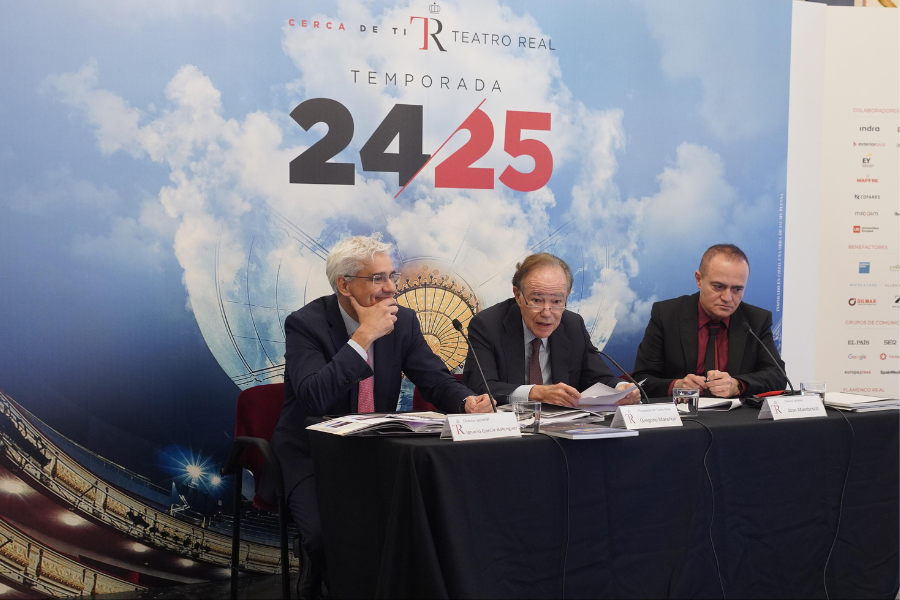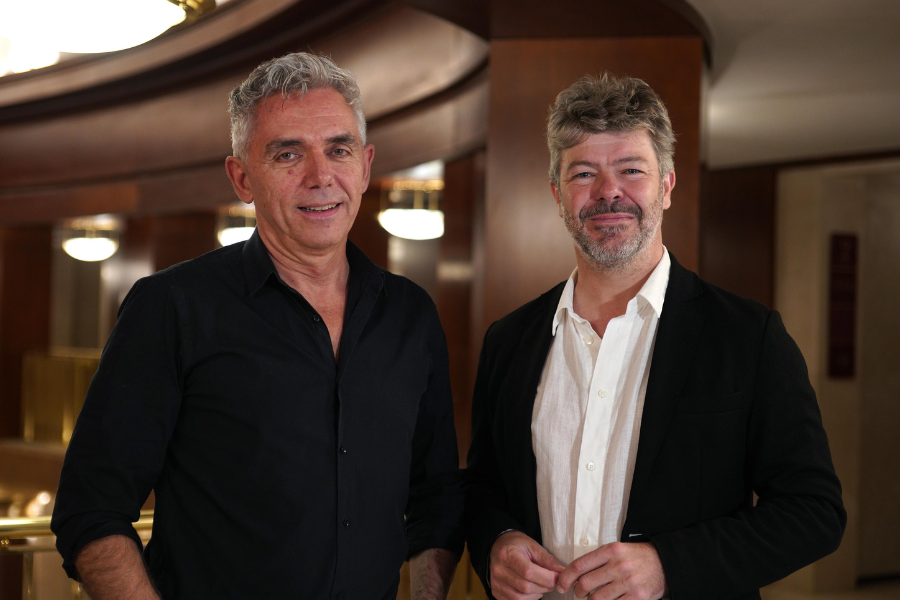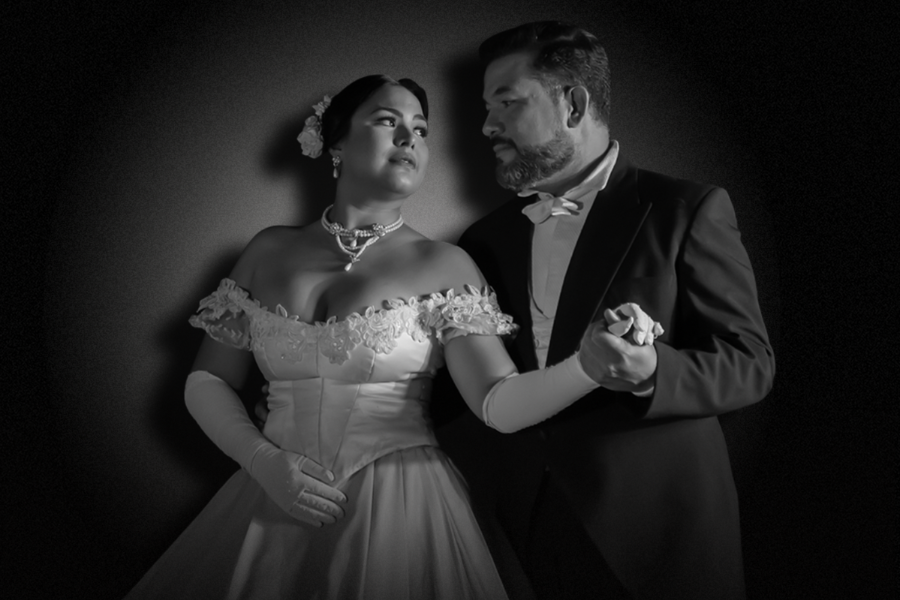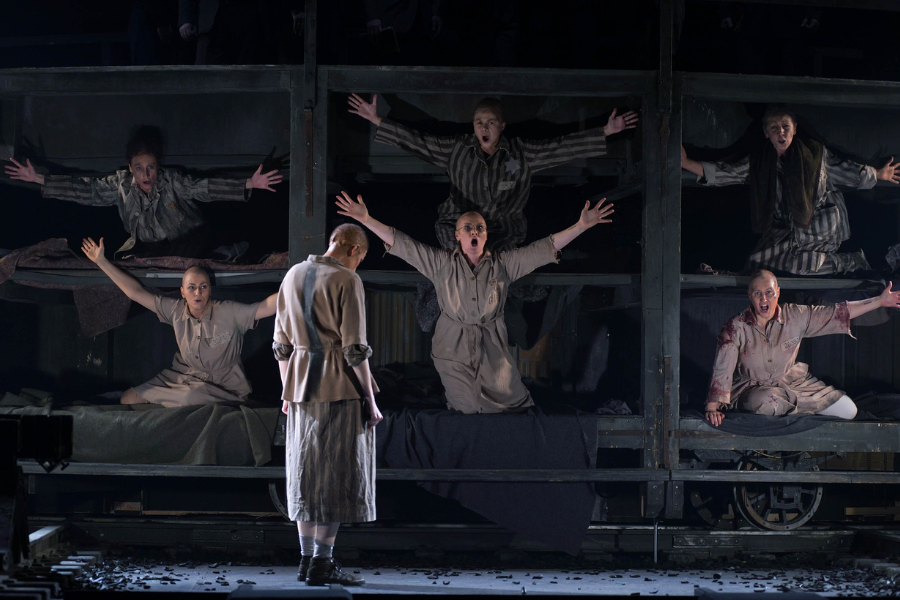A Traviata with social distance: Teatro Real open its doors to the public with a strict protocol sanitary
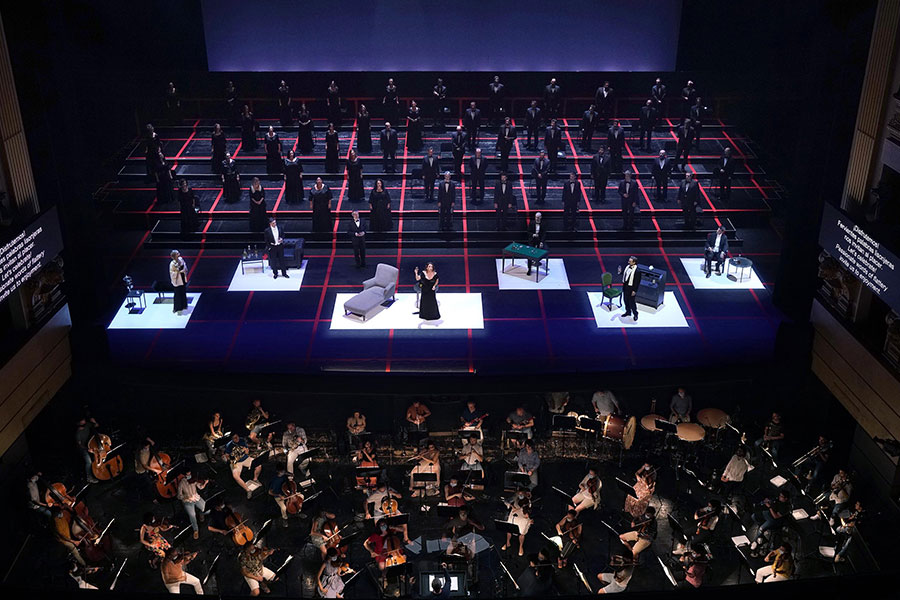
27 opera functions will be offered between July 1 and 29, with limited capacity and a complex and meticulous protocol of sanitary security.
Nicola Luisotti, a great Verdian expert and invited musical director of Teatro Real, will be in charge of directing 21 functions, alternating with Luis Méndez Chávez, who will direct 6.
The performance of July 15 will be broadcast through My Opera Player for free and for everyone.
Leo Castaldi – Willy Decker’s assistant in the production of La traviata that was initially planned – is responsible for the stage concept of the opera, which will be presented in a semi-staged concert version, with elements of props, tailoring and characterization of Teatro Real.
The traviata, by Giuseppe Verdi, was planned this season ─with the famous production of the Salzburg Festival directed by Willy Decker─ in two periods: from 9 to 24 May (10 performances) and from 7 to 19 July (9 performances).
Due to the state of alarm decreed by the Government of Spain, the performances in May have not been able to take place, so Teatro Real is trying to relocate the people who had purchased their tickets for those dates in July. At the same time, the spectators of the July performances affected by the restriction of the capacity, which will be seats, will be relocated 869 in compliance with the health safety regulations.
From the 19 programmed functions it has gone to 27 with reduced capacity, which will be offered from July 1 to 29 on July (there will be no function 6 and 20), with four different casts in the interpretation of the leading trio: as Violeta, sopranos Marina Rebeka, Ruth Iniesta, Ekaterina Bakanova, Lana Kos and Lisette Oropesa; like Alfredo Germont, tenors Michael Fabiano, Ivan Magrì, Matthew Polenzani and Ismael Jordi; and like Giorgio Germont, the baritones Artur Rucinski, Nicola Alaimo, Luis Cansino and Javier Franco.
Free access to MyOperaPlayer will be allowed only for the live broadcast of La traviata on July 15 at 8:00 p.m. Subsequently, the recording will become part of the platform’s catalog.
Due to the mobility restrictions caused by the coronavirus crisis both in Spain and in the various countries of origin of the singers – who traveled from the United States, Austria, Croatia, Italy, Latvia, Poland, etc. – the trials have started on June 19 with all the soloists, except for the soprano Lisette Oropesa, who will arrive in Madrid on July 13 to participate in the final performances of the opera.
Along with the soloists, thewill perform Teatro Real Choir and Orchestra, under the direction of Nicola Luisotti, who will conduct his fifth Verdian title at the Teatro Real ─after Il trovatore (2007), Rigoletto (2015), Aida (2018) and Don Carlo (2019)- and who will return in September with the sixth, Un Ballo in Maschera, which will open next season.
The production of La traviata that will be offered throughout the month of July will no longer be the one that was announced, directed by Willy Decker, since the singers, choir and orchestra must comply with current health safety guidelines.
To present a version of the opera that respects these rules and that can be performed with just 10 days of rehearsals, costume tests and characterization, stage director staged Leo Castaldi has devised a semi-concert version, in collaboration with the illuminator Carlos Torrijos and the technical team of the Teatro Real, using elements of props, costumes and characterization from the Theater’s collection.
Precisely starting from the forcefulness with which the safety distance is coming between us, Leo Castaldi has conceived a ‘scenery’ marked by a grid of squares of 2 by 2 meters drawn on the ground and projected onto the walls of the stage, ‘ psychologically imprisoning the characters in their limited spaces. The soloists, who will keep a minimum distance of 2 m. Between them they will move on 100 m2, sharing the stage with the choir, which will occupy 260 m2, and with the internal band (group of 16 musicians who plays on stage), who will useduring their performance 60 m2.
In order to unify and unite the dramaturgical proposal without a previous costume design or material time to carry it out, Castaldi has chosen to create a atmosphere vintage, from the mid-20th century, in which costumes from the Theater and from the performers themselves and elements of props from the same period.
In the pit, with its maximum dimension of 140 m2, will be the orchestra with the complete template of the score for performance of La traviata: 56 musicians will play with mask, individual lectern and with 1.5 m. distance between them. Wind players will have methacrylate panels strategically placed in front of their instruments. The internal band will play on stage with 16 teachers.
So that the musicians can have rest days between the 27 performances, Orquesta Titular del Teatro Real will split into two playing each formation for periods of 3 consecutive days.
Teatro Real Titular Choir, with 51 singers, will perform the opera on stage, which will allow the optimization of the sound, despite the safety distance of 2 m. among its members. They will occupy an area of 260 m2, with approximately 24 m. wide by 11 m. background.
The traviata will be presented at Teatro Real in the unique context that we are all experiencing. The opera will be presented with fewer rehearsals than normal and with a stage proposal designed to adapt to the circumstances. The entire team of the Teatro Real, as well as the artists and the Titular Choir and Orchestra, take on the challenge with an enormous sense of responsibility, a lot of imagination and a great enthusiasm for taking another step towards the normalization of artistic life, encouraging the public and to the citizens to face the new reality in which we find ourselves with encouragement and a positive spirit. Of course, everything will be done scrupulously respecting the guidelines of the health authorities of the Government of Spain and the Community of Madrid.




